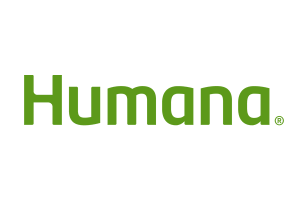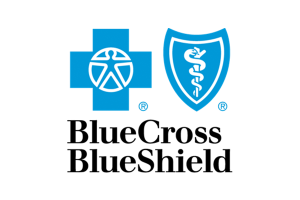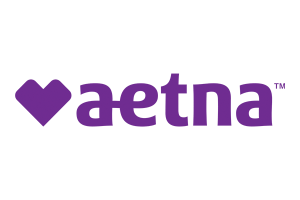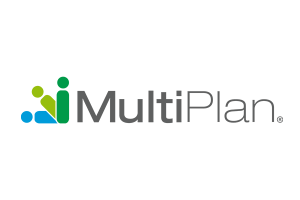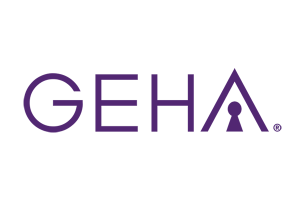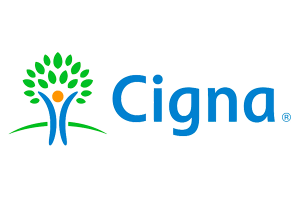Exploring the Partial Hospitalization Program benefits unveils a path to recovery that many might not know exists.
In the realm of addiction treatment, options range from intensive inpatient care to flexible outpatient services. Each has its unique approach, catering to different needs and stages of addiction recovery.
Amidst this spectrum lies the Partial Hospitalization Program (PHP), a modality that offers a balanced blend of structured support and personal freedom.
For those grappling with addiction, understanding these programs’ benefits is the first step towards making an informed decision about their recovery journey.
Who Are PHPs Best For?
PHPs are designed for individuals who need more support than typical outpatient care can provide, but who may not require or cannot commit to full-time residential treatment. This middle ground is where PHPs thrive, offering intensive treatment without the full-time commitment of inpatient care. Patients benefit from a structured therapeutic environment while maintaining the ability to live at home, thus integrating recovery with daily life.
The purpose of this article is to dive into the multifaceted benefits of Partial Hospitalization Programs. By breaking down each advantage, we aim to provide a clear, comprehensive understanding of how PHPs can be a pivotal element in the journey to overcoming addiction.
Whether you are exploring treatment options for yourself or a loved one, this exploration of PHP benefits will offer valuable insights and guidance.
Understanding PHPs
It’s common to have questions about what exactly a Partial Hospitalization Program (PHP) is, especially when compared to other treatment options like Intensive Outpatient Programs (IOP). In this section, we’ll clear up any confusion and explain how PHPs stand apart, helping you understand why they might be the right choice for you or your loved one.
Definition and Basic Structure of PHPs
A Partial Hospitalization Program, or PHP, is a specific kind of treatment for addiction. It’s a balance between intensive inpatient care and more flexible outpatient programs.
In a PHP, you spend several hours at a treatment center, Treatment is structured 3 to 5 days in a week, often including weekends, with morning and evening schedules.. Here, you receive focused therapy and support.
However, unlike a full-time hospital stay, you return home each evening. This structure allows you to maintain your daily life while receiving the intensive care you need.
Differentiation from Other Treatment Options
How does a PHP differ from other addiction recovery programs? It’s best understood when compared to inpatient and outpatient treatments.
Inpatient or residential programs require a full-time stay at the facility. Outpatient programs involve just a few hours of therapy each week, with the patient living at home.
PHPs fit right in the middle. They provide more support and structure than standard outpatient care, but are less demanding than full-time inpatient programs.
This makes PHPs ideal for those who need more than just occasional therapy but are unable to commit to or don’t require around-the-clock hospitalization.
Learn more about PHPs at Rising Phoenix Wellness Center
Benefits of PHP Programs
In choosing the right treatment for addiction recovery, understanding the specific benefits of each option is crucial. Partial Hospitalization Programs (PHPs) offer a unique set of advantages that cater to various needs during the recovery process. Here, we will explore 15 key benefits of PHPs, each shedding light on why this program might be the ideal choice for you or your loved one.
1. Intensive Treatment without Residential Commitment
Partial Hospitalization Programs (PHPs) bridge the gap between inpatient intensity and outpatient flexibility, providing the same level of focused care without requiring an overnight stay. This format is particularly beneficial for individuals with family or work commitments who cannot be away from home for extended periods.
During the day, patients engage in intensive therapy sessions, which may include individual counseling, group therapy, and other therapeutic activities. In the evening, they have the opportunity to apply what they’ve learned in their own environment, facilitating real-time integration of recovery skills. This balance is crucial for many in recovery, offering a blend of rigorous treatment and personal autonomy.
2. Cost-Effective Treatment Solution
The cost of treatment is a significant consideration in addiction recovery. PHPs present a more affordable option compared to full-time residential care, as they do not include the costs associated with round-the-clock monitoring and accommodation.
Patients receive high-quality treatment, including access to medical care, therapy, and support services, but at a lower overall cost. This affordability makes PHPs accessible to a broader range of individuals, ensuring that financial barriers do not impede access to essential treatment. By providing a cost-effective solution, PHPs help democratize addiction treatment, allowing more people to receive the care they need to embark on their recovery journey.
3. Structured Environment
A structured environment is a key element in the recovery process, particularly in the early stages of addiction treatment. PHPs offer a well-organized schedule that includes therapy sessions, group meetings, and other recovery activities.
This structured approach helps patients maintain focus on their recovery goals and provides a stable framework that supports their journey to sobriety. The consistency of a daily routine within the PHP setting fosters a sense of security and predictability, which can be incredibly beneficial during a time of significant personal change. Additionally, the structure provided by PHPs helps patients develop new, healthy habits that are essential for long-term recovery.
4. Real-Life Skill Application
PHPs emphasize the real-life application of recovery skills, allowing patients to directly implement the strategies they learn in therapy in their everyday environments. This hands-on approach is crucial for long-term success, as it enables individuals to practice coping mechanisms and relapse prevention techniques in real-world situations.
By applying these skills in familiar settings, patients can better navigate the challenges and stressors they will face outside of the treatment facility. This immediate application also provides valuable feedback to therapists, who can then tailor treatment plans to address specific difficulties encountered by patients. The integration of therapy with daily life fosters a more holistic and effective recovery process.
5. Personalized Treatment Plans
Personalization is a cornerstone of PHPs, recognizing that each individual’s journey to recovery is unique. Treatment plans in PHPs are tailored to meet the specific needs, challenges, and goals of each patient.
This customization may involve a combination of different therapeutic approaches, such as cognitive-behavioral therapy, motivational interviewing, and experiential therapies. The adaptability of PHPs allows for modifications in treatment plans based on patient progress and feedback, ensuring that each person receives the most appropriate and effective care. Personalized treatment not only enhances the relevance and effectiveness of therapy but also fosters a sense of individual attention and care, which can be crucial for patient engagement and motivation.
6. Continuous Medical and Psychiatric Support
PHPs provide continuous medical and psychiatric support, an essential component of a comprehensive addiction treatment plan. This ongoing care includes regular health assessments, medication management (if necessary), and consistent monitoring of mental health conditions.
The availability of medical professionals ensures that any physical or psychological issues that arise during treatment are promptly addressed, thereby preventing complications and promoting overall well-being. This continuous support is particularly important for individuals with co-occurring disorders, as it allows for integrated treatment of both substance abuse and mental health issues. The presence of a dedicated medical team within PHPs ensures that patients receive holistic care that addresses all aspects of their health.
7. Family Involvement
Family involvement is a significant aspect of PHPs, as addiction recovery often requires support from loved ones. PHPs frequently incorporate family therapy sessions, which provide a space for family members to understand the dynamics of addiction, learn effective communication skills, and rebuild trust.
These sessions facilitate healing within the family unit, helping to repair relationships that may have been strained by the individual’s substance abuse. Engaging families in the treatment process also educates them on how to best support their loved one’s recovery journey, creating a more supportive and understanding home environment. The inclusion of family therapy in PHPs underscores the program’s commitment to a holistic approach to recovery, recognizing the importance of a strong support network.
8. Peer Support and Group Therapy
In PHPs, the value of peer support and group therapy is immense. Patients connect with others who are on similar recovery journeys, sharing experiences and insights. This connection fosters a sense of community and belonging, often crucial in overcoming feelings of isolation associated with addiction.
Group therapy sessions provide a platform for patients to give and receive support, learn from each other’s experiences, and develop social skills in a safe environment. This peer engagement is not just therapeutic; it also helps in building a supportive network, which can be a vital resource post-treatment for maintaining long-term sobriety and wellness.
9. Transition Support Post-Inpatient Care
Transitioning from inpatient care to everyday life can be challenging. PHPs offer vital support during this period, helping patients adjust to a less structured environment while maintaining their focus on recovery.
This step-down approach eases the transition, reducing the risk of relapse as patients gradually reintegrate into their daily routines. The continued therapeutic support in PHPs allows for a smoother shift in care levels, providing a safety net as patients navigate the complexities of returning to their normal life. This transitional support is critical for reinforcing the skills and strategies learned during inpatient treatment, ensuring a solid foundation for continued recovery.
10. Focus on Relapse Prevention
Relapse prevention is a primary focus in PHPs. Patients are equipped with strategies to identify and manage potential triggers and high-risk situations.
This proactive approach involves developing personalized plans that address the specific challenges and vulnerabilities of each individual. By focusing on relapse prevention, PHPs empower patients with the tools and knowledge needed for sustained recovery. This includes coping mechanisms for stress, techniques for avoiding temptation, and plans for dealing with cravings. The skills learned in PHPs are not only crucial for preventing relapse but also for building a resilient and healthy lifestyle post-treatment.
11. Access to Diverse Therapies
PHPs offer a wide range of therapeutic approaches, catering to the diverse needs and preferences of patients. This variety includes traditional counseling methods, such as cognitive-behavioral therapy, alongside more innovative treatments like art therapy, music therapy, and mindfulness practices.
Having access to diverse therapies allows patients to explore different avenues of healing and find the methods that resonate most with them. This diversity in treatment approaches ensures a more holistic and comprehensive recovery process, addressing various aspects of a person’s well-being. It also keeps the treatment experience engaging and dynamic, which can be crucial for maintaining patient interest and participation.
12. Flexibility for Personal Responsibilities
One of the defining features of PHPs is their flexibility, which allows patients to balance treatment with their personal and professional responsibilities. This aspect is particularly beneficial for those who cannot afford to take an extended leave from work, school, or family duties.
By attending treatment sessions for part of the day and returning home afterwards, patients can maintain their daily routines and commitments. This flexibility minimizes the disruption to their lives, making it easier to commit to the treatment process. It also fosters a sense of normalcy and control, which can be empowering for individuals in the recovery process.
13. Building Life Skills
Apart from addiction treatment, PHPs place a strong emphasis on life skills training. This includes learning effective communication, stress management, problem-solving, and financial management skills.
These life skills are crucial for building a stable, productive life post-treatment. They help patients cope with the everyday challenges of life without resorting to substance use. By focusing on these skills, PHPs prepare patients not just for the immediate recovery period but for long-term success and independence. This holistic approach to treatment ensures that individuals leave the program not only sober but also better equipped to handle the complexities of everyday life.
14. Enhanced Privacy
PHPs offer a level of privacy and discretion that is often preferred by many individuals. Unlike inpatient treatment, where patients stay at the facility full-time, PHPs allow for a more private approach to recovery.
Patients attend therapy sessions during the day and return to the privacy of their own homes in the evening. This setup is especially appealing to those who value their privacy and wish to maintain a low profile during their recovery journey. The ability to receive treatment without a prolonged absence from one’s usual environment can also reduce the stigma or misconceptions associated with addiction treatment.
15. Immediate Feedback and Adjustments
A significant advantage of PHPs is the opportunity for immediate feedback and adjustment in treatment plans. Regular sessions with therapists and healthcare providers allow for continuous monitoring of progress and challenges.
This immediacy ensures that treatment plans are dynamically adjusted to meet the evolving needs of the patient. If a particular therapy or approach is not working, it can be quickly modified or replaced. This responsiveness is key to effective treatment, as it allows for a tailored approach that evolves with the patient’s journey. Such flexibility in treatment planning is essential
In summary, Partial Hospitalization Programs offer a comprehensive, flexible, and supportive approach to addiction recovery, addressing a wide range of individual needs.
Let’s now hear from those who have experienced these benefits first-hand, as we move share several patient testimonials next.
Patient Testimonials
At Rising Phoenix Wellness Services, we pride ourselves on delivering personalized care through our dedicated mental health providers, which has led to remarkable results for many.
While our PHP program may not be the perfect fit for everyone, the following testimonials from individuals who have experienced our program firsthand reflect the positive impact and transformative experiences that many have found with us.
What Our Clients Are Saying:
Our Credentials and Licenses
Rising Phoenix proudly holds accreditation from the Joint Commission, a symbol of quality that reflects our commitment to meeting high performance standards. Additionally, we are licensed by the Arizona Department of Health Services, ensuring our practices comply with state regulations and guidelines.
Since our establishment in 2018, we have been recognized as an accredited substance abuse treatment center, delivering comprehensive outpatient treatment services. We cater to a diverse group of individuals, offering specialized care to men and women aged 18 to 65 and beyond.
Our programs are designed to address the unique needs of each age group, ensuring an inclusive and effective treatment experience for all our clients. This combination of accreditation, licensing, and experience underscores our dedication to providing the highest quality of care in addiction recovery.
insurance and payments
We Accept All Major Insurance Including:
Conclusion
In summary, Partial Hospitalization Programs at Rising Phoenix offer a spectrum of benefits, tailored to support individuals on their journey to recovery.
From providing intensive treatment with the flexibility of living at home to offering cost-effective and personalized care, PHPs stand as a beacon of hope for many.
The structured environment, combined with the real-life application of recovery skills, ensures that each individual is equipped with the tools necessary for sustainable healing.
The testimonials we've heard today are a testament to the transformative power of compassionate, comprehensive care in PHPs.
If you or a loved one is navigating the path of recovery from addiction, consider the empowering option of a Partial Hospitalization Program.
At Rising Phoenix, we're committed to providing a supportive, tailored treatment experience.


